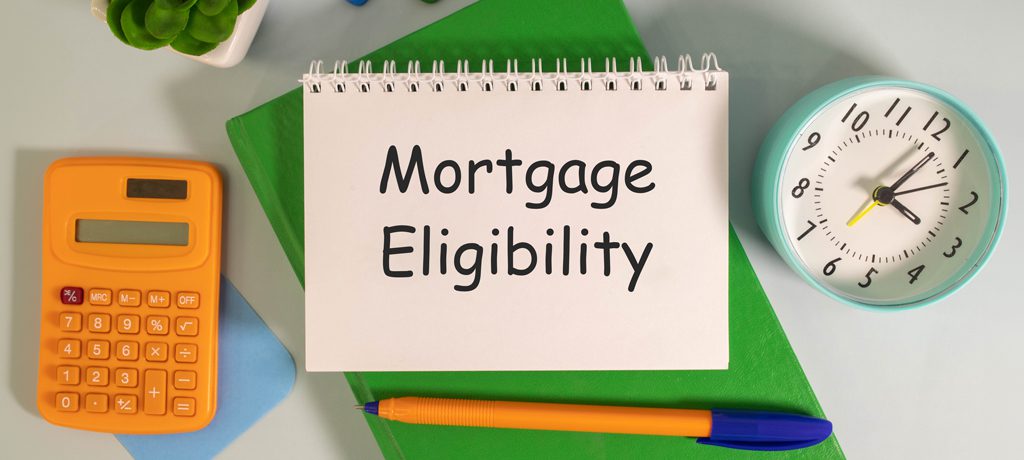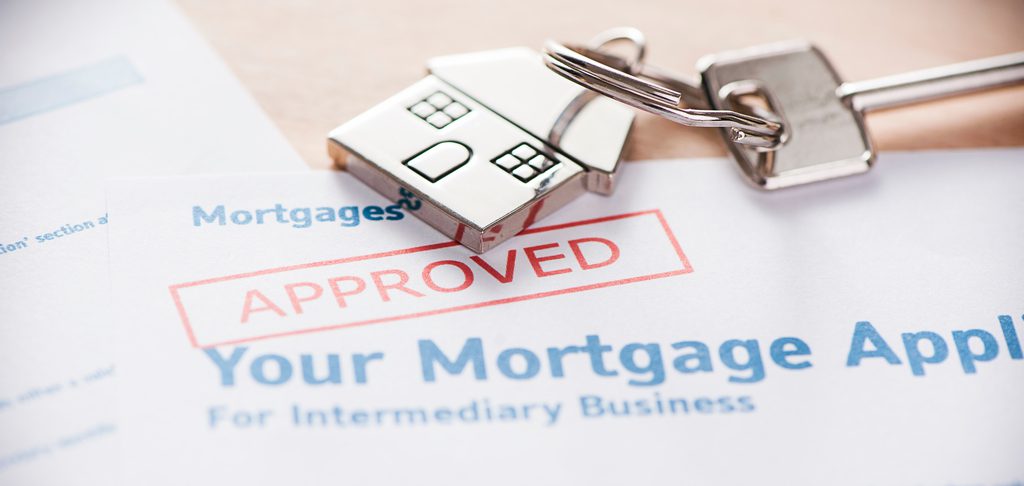Securing a mortgage in the UK involves many obstacles, from credit score evaluation to strick affordability criteria. Our guide aims to give an in-depth view of these hurdles and help prepare you for a successful application by offering practical advice addressing mortgage lender policies and market trends to help you achieve mortgage approval.
Whether you’re a first-time buyer or interested in property investment, this article is here to help you increase your likelihood of getting approved for a mortgage. With our expert guidance and supportive advice, securing a mortgage for your property should become achievable sooner rather than later! Have a read, and then get in touch with our team for fee-free mortgage advice and support.
10 Common Issues That Affect People Getting a Mortgage
Before we delve into the specifics of what can stop you from getting a mortgage, here are the 10 most common factors that affect mortgage applications in the UK:
- Poor Credit Score: A low credit score can signal higher risk to mortgage lenders, potentially leading to application denial.
- High Debt Levels: Excessive debt may raise concerns about your ability to manage additional loan payments.
- Frequent Credit Applications: Multiple credit applications in a short timeframe can suggest financial instability.
- Not Registered to Vote: Being on the electoral register is crucial for identity and address verification by mortgage providers.
- Insufficient Income: Inadequate income for mortgage repayments can result in application rejection.
- Small Deposit: A minimal deposit increases the loan-to-value ratio, which can deter lenders.
- Short UK Residency: Mortgage providers might view limited time as a UK resident as a risk.
- Self-Employment or Contract Work: Irregular income can cause doubts about making consistent payments.
- Payday Loans: The presence of payday loans on your credit report, even if repaid on time, can negatively impact your application.
- Administrative Errors: Inaccuracies in your mortgage application or credit file can lead to declines.
Addressing these factors before applying can significantly improve your chances of securing a mortgage loan. It highlights the importance of careful preparation and awareness of how mortgage provider policies and personal circumstances intersect in the mortgage approval process.
Understanding Your Mortgage Eligibility
Securing a mortgage is an integral step towards homeownership, requiring a thorough understanding of mortgage eligibility, lender requirements and how best to meet them. Before beginning, you must familiarise yourself with key aspects of eligibility. These key considerations can significantly impact your ability to finance your dream home. The insights below explore critical factors that influence your mortgage approval.
The Role of Your Credit Report
A healthy credit report is your ticket to mortgage approval as lenders conduct thorough mortgage credit checks. Mistakes or past financial missteps reflected in your credit report, like late payments or bankruptcies, can deter most lenders. It’s crucial to review your credit report from agencies like Equifax and Experian for accuracy and improve your credit score wherever possible. Remember, a good credit history opens doors to better mortgage deals.
Is Having No Credit History a Problem?
You will also have a low credit rating if you have no credit history at all. Lenders will want to know that you’re a responsible borrower before lending to you so it’s wise to pursue sensible forms of credit before your application. However, too many credit applications can affect your score so you shouldn’t go overboard. Thoughtfully building a credit history can enhance your borrowing potential.
The Impact of Deposit Size on Mortgage Approval
The size of your deposit plays an essential part in securing a successful mortgage application. While most lenders require at least 5% deposit, typically 15-20% is preferred to secure more favourable mortgage terms and better interest rates.
On the other hand, deposit sizes exceeding 20% often unlock more competitive mortgage terms as lenders prioritise applicants who pose lower risks compared to borrowers who make smaller deposits. A substantial deposit size not only affects eligibility and affordability – it can be leveraged as an effective way to secure a much better deal.
Evaluating Your Debt-to-Income Ratio
Lenders scrutinise your debt-to-income ratio to ensure you can comfortably manage mortgage repayments alongside existing debts. High debt levels, including unused overdrafts or credit facilities, can signal financial instability to lenders, potentially derailing your application. Striving for a lower debt-to-income ratio can significantly boost your mortgage prospects.
The Effect of Recent Large Purchases
Recent significant expenditures, especially if financed through credit, can negatively impact your mortgage application. Such spending behaviours may suggest a lack of financial prudence to lenders, undermining your application. It’s advisable to curtail major purchases before applying for a mortgage.
Affordability Checks and Income Multiples
Lenders assess your ability to afford a mortgage loan by comparing your income with expenses; then apply income multiples as part of this evaluation process.
Mortgage providers often offer mortgage income multiples of 4.5-6 times your annual income, depending on their assessment of financial stability and risk through their mortgage affordability calculator. Mortgage lenders usually offer 4.5 times your income, but it can vary from lender to lender. It all comes down to your income and your level of debt.
Understanding these criteria is paramount as they will directly impact mortgage eligibility and monthly repayment costs; understanding these differences underscores why it’s beneficial to consult a mortgage broker who will help you find the most appropriate mortgage for your situation.
Discover how much you can borrow with our Mortgage Affordability Calculator >
Importance of Stable Employment and Reliable Income
Stability in employment and a regular income help lenders feel confident you can support mortgage payments. Frequent job changes or fluctuating income streams may raise red flags that require further proof of financial security; showing evidence of consistent job security and income can help your application pass affordability checks more easily. Here are specific situations which could impact your application:
- Contract Work: Mortgage lenders can perceive short-term contracts that leave periods without income as risky; similarly, freelance income may fluctuate monthly, making lenders wary, and leading them to require proof of consistent earnings over a longer timeframe.
- Self-Employment: Lenders typically require additional documentation from individuals self-employed to establish stable income.
- Commission-Based Jobs: Income that relies heavily on commission can fluctuate frequently, making lenders cautious without proof of steady earnings history.
- Recent Employment: Lenders often scrutinise new or changing jobs to determine employment stability.
- Part-Time Work: Mortgage lenders might question if part-time income suffices for mortgage repayments if it is the sole source of income.
- Seasonal Employment: Jobs not providing year-round income can cause financial insecurity during off-seasons.
For those with nontraditional income streams, providing additional documentation like tax returns or bank statements showing consistent income over time can help demonstrate financial security to lenders.
The Effect of Recent Large Purchases
Recent significant expenditures, especially if financed through credit, can negatively impact your mortgage application. Such spending behaviours may suggest a lack of financial prudence to lenders, undermining your application. It’s advisable to curtail major purchases before applying for a mortgage.
Property Factors That Affect Mortgage Approval
Did you know that property types and characteristics can significantly affect your chances of mortgage approval? This section focuses on the importance of the property construction type, valuation, and location in the lender’s decision-making process.
Issues with Property Valuation
A property’s valuation directly influences the mortgage amount a mortgage provider is willing to offer. If an appraisal values the property lower than expected, you might need to cover the shortfall. Understanding property values in your desired area can prepare you for realistic mortgage discussions.
“We often see estate agents inflate property prices, which causes complications during the mortgage application process. Lenders will do their own local property market research and may subsequently downvalue these properties causing difficulties for potential buyers. It’s crucial that buyers remain aware of these discrepancies to better navigate their mortgage and property buying journey.”
Challenges with Non-Standard Properties
Non-standard properties present special challenges in mortgage applications due to potential difficulties with resale. Lenders tend to be wary of properties deviating from conventional construction norms, forcing mortgage applicants to seek more specialised mortgage products or lenders for these properties.
Below is a list of some of the non-standard property construction types to be aware of that could cause issues with some mortgage lenders:
- Prefabricated Homes: Also known as prefab homes, these are built off-site and transported to the location. They may not be considered as durable as traditional homes.
- Converted Properties: These properties, such as old factories or barns, have been converted for residential use. Their unique characteristics might make them harder to value.
- High-Rise Flats: Flats in high-rise buildings, particularly those above a certain floor, can be seen as less desirable due to potential issues with access, maintenance, and insurance.
- Listed Buildings: These are properties of historical or architectural significance. They can be difficult to modify or repair, affecting their market value.
- Thatched Properties: Homes with thatched roofs can be seen as a fire risk, making them more difficult to insure.
- Timber-framed properties: While common in some periods of history, modern lenders may be wary of them due to perceived risks regarding durability.
- Non-Traditional Construction Houses: Houses built using non-traditional methods (e.g., post-war prefabs) or materials (e.g., concrete, steel) can be considered higher risk.
- Flats Above Shops: These properties can be seen as higher risk due to potential noise, privacy, and security issues. Their mixed-use nature might also complicate insurance matters.
Remember, each lender will have their criteria, and some may be more flexible than others. It’s always a good idea to seek advice from a mortgage advisor when dealing with non-standard properties, as they can provide tailored advice and help find lenders more amenable to your specific situation.
The Impact of Property Location
The location of a property can affect mortgage approval, with some lenders imposing restrictions on certain areas or property types. Research and a flexible approach to property selection can mitigate location-based hurdles.
Below is a list of some of the property locations to be aware of that could cause issues with some mortgage lenders:
- Urban vs Rural: Properties in rural areas might be harder to value due to a lack of comparable sales, and some lenders may not service these areas.
- Flood Zones: Properties in areas prone to flooding might require additional insurance, affecting affordability.
- Crime Rates: High crime rates in a neighbourhood can affect a property’s desirability and, therefore, its value.
- Proximity to Commercial Areas: Near commercial or industrial zones can affect a property’s value and desirability.
- School Districts: Properties in highly rated school districts often have higher values, which can affect the loan-to-value ratio.
- Environmental Factors: Proximity to environmental hazards (e.g., waste facilities and power plants) can affect a property’s value and insurability.
- Proximity to Commercial Areas: Being near or above commercial zones (like shops) can affect a property’s value and desirability due to potential issues with noise, privacy, and security.
- Local Market Conditions: The health of the local property market can affect property values. In a slow market, lenders might be more conservative in their valuations.
Keep in mind that each lender has its criteria and some may be more accommodating than others. Facing location-related hurdles doesn’t have to be the end of your mortgage journey – always seek advice from an independent mortgage advisor who can guide you through these challenges with tailored advice tailored specifically to your situation and help find lenders best suited for you.
How Mortgage Lender Policies Affect Mortgage Approvals
Lender policies play an integral role in the mortgage approval process, and this section explores their impact. Here, you’ll discover how policies like interest rates and loan terms influence whether a lender will approve or deny your application for mortgage approval. Understanding these elements is essential to successfully progressing down this journey toward approval.
Understanding Mortgage Lenders’ Risk Preferences
Lenders differ in risk tolerance, which dictates which borrowers and properties they’re willing to finance. Matching up your application with their preferences increases your chance of approval; having assistance from a mortgage advisor in this process could prove invaluable.
Key Factors Influencing Lender Risk Preferences:
- Credit Score: Higher credit scores often signal lower risk to the lender.
- Employment History: A consistent employment history proves a stable income.
- Property Type: Certain types may be less prone to risk.
- Loan-to-Value Ratio (LVR): Ratios should remain low.
- Debt-to-Income Ratio: Lower percentages indicate better financial health.
Know Your Restrictions in Mortgage Products
Mortgage products often have specific criteria and restrictions. Being familiar with them will enable you to target applications towards products that best suit your financial situation and property choice, potentially increasing the chance of approval.
Limitations on Mortgage Products:
- Maximum Loan Amounts: Lenders may impose limits based on the property’s value or the borrower’s income.
- Eligible Properties: Some mortgage products are limited to certain types or conditions of properties.
- Borrower Eligibility: Lenders often require minimum credit scores or income levels.
- Utilisation Of Property: Some mortgage products differentiate between owner-occupied (residential mortgages) and investment properties (buy-to-let mortgages).
- Applicants Age: Some mortgage products, like buy-to-let mortgages, typically require the applicant to be at least 21. Lenders cannot discriminate based on age but can consider age-related factors.
Choosing The Wrong Mortgage Lender
In some cases, your mortgage application may appear perfect: excellent credit, sufficient savings for the deposit, and stable income. Yet, it can still be declined. This is because lenders have unique eligibility criteria. Besides age and employment status, there might be other factors making your application less appealing to them.
Although reasons for rejection vary, and lenders don’t follow strict rules on approvals, it’s frustrating when efforts to improve don’t seem enough.
To avoid rejection for any reason, contact us. Our team connects you with lenders likely to approve your application and find the best interest rate deals for your mortgage situation.
10 Ways to Increase Your Chances of Mortgage Approval
Improve your chances of mortgage approval through a multifaceted approach, including improving financial health and making strategic decisions. Here are ten effective strategies you should consider.
- Improve Your Credit Score: Check your credit report regularly for errors, pay your bills on time, and limit how much of your available credit you use. This is one surefire way to improve your score!
- Reduce Your Debt: Pay down existing, high-interest debts to reduce your debt-to-income ratio. Lowering your overall debt levels can make you a more attractive candidate to lenders.
- Limit Credit Applications: Too many new credit applications can adversely impact your credit score. It’s wise to limit new applications, particularly in the months before your mortgage application.
- Register to Vote: Registering on the electoral roll is crucial as it allows lenders to validate your identity and address easily.
- Increase Your Income: Finding ways to raise your income can make mortgage payments more manageable. Consider options like getting a raise, taking on extra work, or exploring other income sources.
- Building Your Deposit: Saving for a larger deposit reduces the amount you need to borrow, potentially making you a more attractive prospect to lenders.
- Establish UK Residency: If you’re new to the UK, establishing a stable residency history can strengthen your mortgage application.
- Prove Your Income: For self-employed individuals or contract workers, maintaining detailed income records is essential.
- Avoid Payday Loans: Such loans could be interpreted as evidence of poor financial management. Avoiding them can bolster your mortgage application.
- Review Your Application: Ensure that all information on your mortgage application is accurate and complete. Any discrepancies can lead to delays or denials.
Taking these steps can significantly enhance your profile as a mortgage applicant. Remember, specific requirements may vary between lenders, so consulting with a mortgage advisor for personalised guidance is beneficial.
Get Professional Mortgage Advice from a Mortgage Broker
Instructing an independent mortgage broker is one of the best ways to increase your likelihood of being accepted for a mortgage. The mortgage process can be complex, particularly when facing rejection or issues. Mortgage brokers offer tailored advice, leveraging their market knowledge to match you with lenders suited to your specific situation. Their expertise can simplify the application process, improve your chances of approval, and guide you toward favourable mortgage terms.
Frequently Asked Questions
On what grounds can you be refused a mortgage?
Poor credit history, late payments, excessive credit applications, not being on the electoral register, and an assessed inability to make repayments are common reasons for mortgage refusal.
Do mortgages get declined often?
While mortgage applications can be declined, it's not uncommon. The reasons for denial vary widely, and each lender has its own criteria for evaluating applications.
What property can you not get a mortgage on?
Mortgage refusal can occur for uninhabitable properties, those with structural issues, non-standard construction methods, or problematic factors like invasive weeds.
What are some reasons for mortgage application rejection?
Insufficient or unstable income, which casts doubt on the applicant's ability to consistently meet repayment obligations, is a frequent cause of rejection of mortgage application.
What types of properties are considered unmortgageable?
Properties often face mortgage challenges if they have a lease under 70 years remaining, as their diminishing value over time impacts their security as loan collateral.





